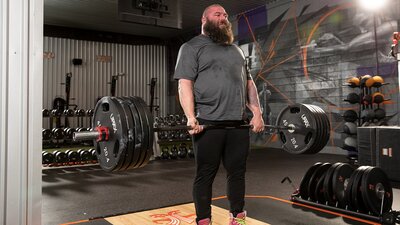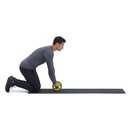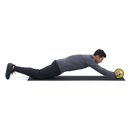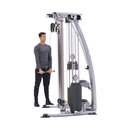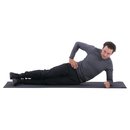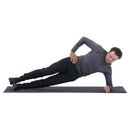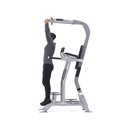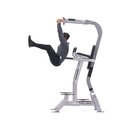Powerlifting for Beginners | Nutrition for Powerlifters | Powerlifting vs. Bodybuilding | Powerlifting Training for Women | Powerlifting Meet Prep | Advanced Powerlifter Pro Tips | Essential Powerlifting Gear
With the rise in popularity of powerlifting in recent years, there has been a profusion of routines that can clutter and overwhelm a powerlifting beginner who simply wants to get going on their path to superhuman strength.
The choices are endless. Are you going to train with lots of variety a la Westside and Louie Simmons? Are you going to go full Eastern Block and squat every day? Or are you even qualified to be aspiring to those programs?
Spoiler alert: You're not—not yet, anyway. The way for a powerlifter to start is by building their base: lifting incrementally heavier weights, practicing good form, eating to grow, and strategic muscle-building assistance work.
Here's how to do it, plus a classic base-building program to get you started.
How to Get Strong at the Powerlifts
Strength coach Paul Carter hit the nail on the head in his article, "5 Musts to Build Unreal Strength" when he laid out these "laws" of getting brutally strong:
- Train the big lifts to get strong at the big lifts.
- Don't just train heavy! Train for speed, as well.
- Train just heavy enough—and not too heavy.
- Don't construct your program around your all-time best one-rep max.
- Be patient and let the gains come.
Those cues can be condensed down into two ideas: train with specificity, and don't let your ego guide you.
So, let's talk about specificity first: You need to become a technique nerd on the bench press, squat, and deadlift! They are now your measurement of strength, period, so you need to know them inside and out. Record-setting powerlifter Layne Norton, Ph.D., can get you started with his in-depth guides to the big lifts from the training program Ph3: Layne Norton's 13-Week Power and Hypertrophy Trainer.
Squat
Bench Press
Deadlift
Pay close attention, develop a little black book of cues, and put them into action in the gym. But no, don't tackle Layne Norton's Ph3 just yet—that's for veteran lifters with meet experience. Something a little simpler will work even better for a beginner.
Layne Norton advocates using a sturdy, buckled belt for both squatting and deadlifting. Wear it right and use it every time you go heavy.
How to Program for Strength
A beginning powerlifting program needs to walk a fine line. It needs to give you enough stimulus to grow on, on a regular basis, but not so much that you're overwhelmed. Here's what fits the bill on all accounts: 5x5 workouts.
When you look at a well-designed three-times-a-week 5x5 program, you make small advances every microcycle, adding small amounts of weight every 1-2 weeks. You use moderate weights, don't go to failure, and nudge them up over time. It leaves enough room for some extra muscle-building work, but not so much that it detracts from the project of building strength.
Is 5x5 magic? Definitely not—you can absolutely screw it up! But it's a set and rep scheme that has shown itself, time and time again, to hit a sweet spot in both intensity and volume for the widest number of lifters.
This week of lifting will get you started. If you like it, you can follow the full program it comes from, Powerlifting for Beginners, and watch as you systematically get stronger week by week!




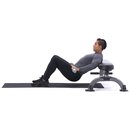
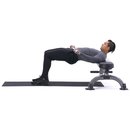
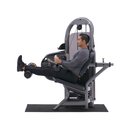
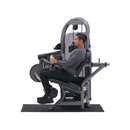
Benching heavy? Wrist supports mean more gains, less pain. Always keep a pair in your gym bag.
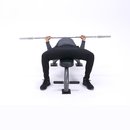
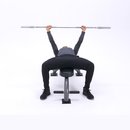
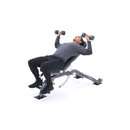
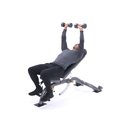
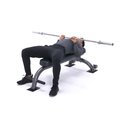
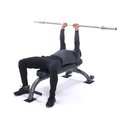

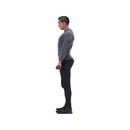
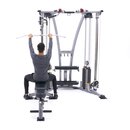
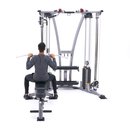
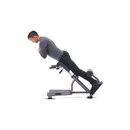
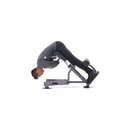


This approach will allow you to be familiar enough with each lift to use advanced techniques like partial lifts and dynamic effort work down the road. For now, just focus on hitting each and every rep, and getting seriously strong!
Creatine has been shown to help lifters build size and increase their max strength. For aspiring powerlifters, 5 grams per day is a no-brainer.



